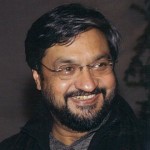 After the rise of multicultural policies in the 1980s and 1990s, the winds have shifted in Europe. Terrorist attacks in Madrid, London, Norway, and, most recently, in Toulouse, have furthered the securitization of Islam across Europe, while increasing immigration (predominantly from Muslim countries) has caused societal tensions. As a result, existing ideas concerning multiculturalism, religious pluralism, and national authenticity are being challenged. Past policies of cordon sanitaire are no longer in full effect, as mainstream political parties have come to adopt some of the ideas of their populist and right-wing peers; witness former president Nicolas Sarkozy’s campaign rhetoric against immigration and Muslims following the strong showing by right-wing candidate Marine Le Pen.
After the rise of multicultural policies in the 1980s and 1990s, the winds have shifted in Europe. Terrorist attacks in Madrid, London, Norway, and, most recently, in Toulouse, have furthered the securitization of Islam across Europe, while increasing immigration (predominantly from Muslim countries) has caused societal tensions. As a result, existing ideas concerning multiculturalism, religious pluralism, and national authenticity are being challenged. Past policies of cordon sanitaire are no longer in full effect, as mainstream political parties have come to adopt some of the ideas of their populist and right-wing peers; witness former president Nicolas Sarkozy’s campaign rhetoric against immigration and Muslims following the strong showing by right-wing candidate Marine Le Pen.
We’ve invited a small handful of scholars to comment on the increasing influence of anti-immigration and anti-Islam ideas and parties across Europe and to offer their thoughts on how best to accommodate minority claims (especially those involving Islam) in a democratic and liberal Europe.
Our respondents are:
Sindre Bangstad, Post-Doctoral Fellow, Department of Social Anthropology, University of Oslo
Keith Banting, Professor of Political Science and Policy Studies and Queen’s Chair in Public Policy, Queen’s University; Will Kymlicka, Professor and Canada Research Chair in Political Philosophy, Queen’s University
Rajeev Bhargava, Director, Centre for the Study of Developing Societies
Jocelyne Cesari, Research Fellow in Political Science and Director, Islam in the West Program, Harvard University
Grace Davie, Professor of Sociology, University of Exeter
Ruby Gropas, Visiting Scholar, CDDRL, Stanford University and Research Fellow, ELIAMEP
Elizabeth H. Prodromou, Assistant Professor of International Relations, Boston University
______
 Sindre Bangstad, Post-Doctoral Fellow, Department of Social Anthropology, University of Oslo
Sindre Bangstad, Post-Doctoral Fellow, Department of Social Anthropology, University of Oslo
The breaking down of the cordon sanitaire surrounding right-wing populism is in fact not as recent a phenomenon as we like to think in Europe. The political impulse to declare multiculturalism a dead letter—even where it never existed—seem to relate to the fallacious understandings of what multiculturalism might conceivably have meant prevailing among many European politicians. Critiques of multiculturalism are, these days, often used as rhetorical proxy for critiques of Islam and Muslims in Europe. Anti-immigration and anti-Muslim sentiments need to be unpacked, analyzed, and responded to primarily at the level of particular nation-state histories and imaginaries. There is also an unprecedented level of co-ordination between various populist right-wing movements and activists across Europe. So much so that rhetorical tropes concerning Islam and Muslims travel seamlessly across the continent. Right-wing populism in contemporary Europe also feeds on a liberal-secular nationalism of sorts, on anti-elitism, anti-intellectualism, and legitimate concerns over the future sustainability of European welfare states. Under the sign of democratic technocracy, across Europe we are witnessing a failure of political leadership and of intellectual vision, articulated in a conception of politics in which poll ratings and pandering to the shifting popular sentiment have become more important than the ideals and principles one espouses. This is a failure of both the mainstream political Left and Right. It requires a monumental intellectual effort by mainstream political parties to formulate more positive and less defensive narratives about the increasingly multicultural societies in which we happen to live; it is an effort still to be pursued in any systematic manner. Muslim minority claims are not necessarily the ‘special cases’ they are often made out to be; pragmatic approaches offer the best way forward.
Europe has a particularly dark history regarding its treatment of religious and ethnic minorities, and with that follows a burden of moral responsibility. It is a burden that must be shouldered even in the bleak and challenging times we are living in at present.
______
Keith Banting,  Professor of Political Science and Policy Studies and Queen’s Chair in Public Policy, Queen’s University
Professor of Political Science and Policy Studies and Queen’s Chair in Public Policy, Queen’s University
Will Kymlicka, Professor and Canada Research Chair in Political Philosophy, Queen’s University
In interpreting contemporary debates about multiculturalism in Europe, it is critical to distinguish between political discourse and government policies. At the level of discourse, there is a widespread perception that multiculturalism has ‘failed’ and that governments that once embraced a multicultural approach to diversity are turning away,  adopting a strong emphasis on civic integration. This reaction, we are told, “reflects a seismic shift not just in the Netherlands, but in other European societies as well.” However, focusing on the level of government programs brings a very different pattern into view. New evidence from our Multiculturalism Policy Index (MCP Index) tracks the strength of multicultural policies for European countries and several traditional countries of immigration at three points in time (1980, 2000, and 2010). The results—available here—paint a different picture of contemporary Europe. While a small number of countries, including most notably the Netherlands, have weakened established multicultural policies during the 2000s, such a shift is the exception. Most countries that adopted multicultural approaches in the later part of the twentieth century have maintained their programs; and several countries have added new ones. Indeed, for Europe as a whole, the average score on the MCP Index went up, not down, between 2000 and 2010. This suggests that civic integration initiatives are often being layered on top of existing multicultural programs, leading to a blended approach to diversity. Moreover, as we argue elsewhere, more liberal forms of civic integration can certainly be combined with multiculturalism. It is the more illiberal or coercive forms that are incompatible with a robust multicultural approach.
adopting a strong emphasis on civic integration. This reaction, we are told, “reflects a seismic shift not just in the Netherlands, but in other European societies as well.” However, focusing on the level of government programs brings a very different pattern into view. New evidence from our Multiculturalism Policy Index (MCP Index) tracks the strength of multicultural policies for European countries and several traditional countries of immigration at three points in time (1980, 2000, and 2010). The results—available here—paint a different picture of contemporary Europe. While a small number of countries, including most notably the Netherlands, have weakened established multicultural policies during the 2000s, such a shift is the exception. Most countries that adopted multicultural approaches in the later part of the twentieth century have maintained their programs; and several countries have added new ones. Indeed, for Europe as a whole, the average score on the MCP Index went up, not down, between 2000 and 2010. This suggests that civic integration initiatives are often being layered on top of existing multicultural programs, leading to a blended approach to diversity. Moreover, as we argue elsewhere, more liberal forms of civic integration can certainly be combined with multiculturalism. It is the more illiberal or coercive forms that are incompatible with a robust multicultural approach.
______
 Rajeev Bhargava, Director, Centre for the Study of Developing Societies
Rajeev Bhargava, Director, Centre for the Study of Developing Societies
Securing individual freedoms has been a strong point of Europe; handling diversity has not.
As is well known, the process of confessionalization in the early 16th century created religiously homogenized political units. Confessional dissenters were exterminated or expelled. A large majority of Jews were forced to immigrate to Poland. There were virtually no resident Muslims left in any part of Europe. This has changed in the 20th century. Cultural and religious diversity is precisely what characterizes Europe now.
Writing in the sixties, when Christianity was adapting to the intellectual hegemony of a scientific rationality, Wilfred Cantwell Smith wrote that the challenge posed to Christianity by science would be a cake-walk compared to the challenge of emerging religious diversity. Years later, writing specifically about Islam, Smith warned that few in the West realize how their perpetual reservations about Muslims and the generally negative perception of Islam follow a pattern set during the Crusades. More than a millennia of animosity between Christians and Muslims survives in the collective memory of both and so too does the urge to compete and settle old scores—not everywhere, not in everyone, but with sufficient strength to adversely affect us all.
In order to accommodate minority claims involving Islam, these virtually invisible background conditions need to be altered. The collective memory of mutual hatred has to be addressed head on. The European Left needs to see multiculturalism or religious pluralism as an integral part of its ideology, not as an enemy or a conservative ideology merely to be tolerated. Religious diversity must be rescued from the conservatives.
It will help if liberals and democrats shed their individualist bias and learn to make a distinction between ‘communitarian’ and what we in India call ‘communal’—between those who see themselves as belonging to a community and those who view their communal affiliation as necessarily antagonistic towards other communities. Such a distinction exists at least implicitly in the European constitution. Therefore, the salvation of every single European country lies in a proper European union. The ills of Europe can be rid only by more of Europe.
Finally, it would not do right-thinking people any harm if they introduced a mixture of prudence and ancient wisdom into their universe of moral principles. Without all this, minority claims do not have much chance of being met in Europe. And this failure would be a big disaster for the entire world.
______
 Jocelyne Cesari, Research Fellow in Political Science and Director, Islam in the West Program, Harvard University
Jocelyne Cesari, Research Fellow in Political Science and Director, Islam in the West Program, Harvard University
The recent victory of socialist François Hollande in France’s 2012 presidential election was certainly a turning point for the social and economic politics of France. Unfortunately, this is less true when it comes to immigration, race, and culture, evidenced by Hollande saying he would firmly support France’s ban on niqabs, or face-covering Islamic veils, and his stance against Turkish accession to the EU.
François Hollande has made clear that he will address the material conditions and worries of French citizens. But he has been quite silent on questions pertaining to cultural diversity and social cohesion, for the simple reason that he shares with Sarkozy the same conception of French national identity, defined as an abstract community of citizens bound together by principles of equality and liberty. In these conditions, the cultural and religious background of citizens is not part and should not interfere with civic solidarity and public life.
However, such an ideal has been increasingly difficult to uphold when Muslims, among other cultural and regional groups, are claiming their right to express their specificity in public space, which has in turn raised the anxiety and fears of a lot of French citizens. These fears have been the main reason for the long-standing political success of the National Front, from its founder Jean-Marie Le Pen to his daughter Marine, the current leader of the party . At the same time, Muslims of all colors and stripes keep asserting that there is no contradiction between being French and being a Muslim.
Nations or groups need to exist in opposition to an ‘Other,’ and in today’s national imagination, Islam plays that role. It may be impossible for societies to completely rid themselves of this polarizing rhetoric.
That said, societies differ in how much their political imaginations are subjected to open critical discussion. Accordingly, it is necessary for French politicians across the political spectrum to explicitly reject economic and social issues being linked to cultural issues or the ‘Islamization’ of Europe. It is also imperative for policymakers to change the dominant narrative of French national identity by including Islamic culture and history.
Such a change would involve a new education project where, from history to arts and culture, Muslims are not described as the Other. It means acknowledging the cross pollination of philosophical and scientific ideas as well as the multiple encounters of artists, merchants, clerics, and migrants from medieval times to the immigration waves after WWII. Most Muslims already acknowledge France as their home and have made numerous artistic and cultural contributions to the French ‘patrimoine.’ The challenge is to reshape French imagination so Muslims can be seen as legitimate fellow citizens.
______
 Grace Davie, Professor of Sociology, University of Exeter
Grace Davie, Professor of Sociology, University of Exeter
Two things are happening at once in European societies. On one hand the process of secularization continues, at times remorselessly; on the other religion has returned to the public sphere. The combination is difficult to handle. Continuing secularization has led, amongst other things, to a marked decline in religious literacy. At the same time complex religious questions make new demands on the knowledge and sensitivities of the actors involved. Hence an uncomfortable paradox: at precisely the moment European populations need them most, they are losing the vocabulary, concepts, and narratives that are necessary to take part in serious conversation about religion. The result, all too often, is a debate that is ill-mannered and ill-informed.
A debate that is ill-mannered denotes a lack of respect for both people and issues. Even more serious is the lack of regard for religion as such. Those for whom religion means little are unable to imagine the damage that is done by the public denigration of faith, be it Christian or other. Legitimate claims, frequently those of minority faiths (such as Islam), are lost in the confusion.
A debate that is ill-informed means that European populations are increasingly susceptible to error and exaggeration. An excellent example can be found in the wildly exaggerated statistics concerning immigration in general and Islam in particular. Astute politicians know this and—at times—overstep the mark. Unfortunately, acute economic uncertainty will make matters worse.
______
 Ruby Gropas, Visiting Scholar, CDDRL, Stanford University and Research Fellow, ELIAMEP
Ruby Gropas, Visiting Scholar, CDDRL, Stanford University and Research Fellow, ELIAMEP
Over the past two decades, surveys have consistently noted a clear message: European citizens are anxious about immigration and its impact on society. Throughout this time, mainstream political parties and European political elites have attempted to respond to these trends: demonstrating the economic and demographic benefits of immigration; encouraging and promoting multicultural initiatives; consolidating and institutionalizing an anti-discrimination framework through EU directives, regulations, and national legislation; and adopting an inclusive discourse promoting the value of diversity, cultural exchange, toleration, and pluralism. They have also become increasingly detached from their base through the professionalization of politics. Throughout this same period, populist and extremist parties have done precisely the opposite. Positioning themselves as representatives of the ‘simple, average citizen’ they have been speaking out about the ‘real and everyday’ threats posed by ‘uncontrolled,’ ‘illegal,’ ‘massive’ immigration and of the ‘incapacity’ or ‘unwillingness’ of Muslim communities to integrate. They have gradually moved from underdog parties on the fringes to actually framing and conditioning pre-election debates and changes in citizenship and migration policies. Moreover, they have built an active presence at the neighborhood and local levels. The lower middle classes, skilled and unskilled working class citizens who increasingly find themselves in conditions of economic insecurity—whether due to the pressures of globalization, the eurozone crisis, or economic recession—have been identifying with the latter’s discourse, finding resonance and comfort in the statements of right-wing populists. Economic grievances, induced by insecure job prospects and shrinking wages and the perception of unfair competition over increasingly scarce social goods such as social housing, health, and pension coverage, are being coupled with strong feelings of cultural threat and the opinion that Muslim migrant communities pose an evident threat to national identity, civic values, and the country’s overall way of life. What is even more disconcerting is that this is taking place against a wider backdrop of dissatisfaction with the functioning of the country’s democratic governance and with falling trust in the mainstream political parties, exacerbated in many cases by corruption and mismanagement scandals.
It is urgent that mainstream political parties re-engage with the local level. There has been a growing gap between governing parties and their constituencies. In order to counter the influence of populist extremists, mainstream parties need to engage once again with voters who feel alienated and become once again integral parts of the communities they represent. At the same time, activities that encourage sustainable and meaningful interaction between different communities at the neighborhood, at the city, and at the regional levels must be intensified. Bringing together members of different groups has always increased understanding, countered perceptions of threat, and created ties that are much needed today to maintain the civic and social cohesion of European societies.
______
 Elizabeth H. Prodromou, Assistant Professor of International Relations, Boston University
Elizabeth H. Prodromou, Assistant Professor of International Relations, Boston University
The success of Golden Dawn (Chrysi Avgi), a fascist party that secured 21 seats in the Greek parliament on the strength of 7 percent of the popular vote, mirrors the alarming consolidation of far-right political parties and social movements underway across the Continent since the end of the last decade.
The Golden Dawn leadership drew directly from the toolbox of the New European Right—by mixing fascistic symbols, ethno-nationalist discourse, an anti-immigrant platform, and the use of street violence—to critique the colossal governance failures of Greece’s traditional political parties (left-of-center PASOK and right-of-center New Democracy). Golden Dawn spun standard, if extremist, Euro-populist discourse to excoriate mainstream PASOK and New Democracy leaders for bankrupting Greece, and this narrative resonated with the country’s shell-shocked middle- and working-classes voters. Similarly, Golden Dawn leader Nikos Michaloliakos echoed the xenophobic chauvinism of European rightists, such as Geert Wilders, Marine Le Pen, and Umberto Bossi, in linking Greece’s economic travails to immigration patterns that have produced one of the most accelerated demographic pluralizations in post-Cold War Europe.
Golden Dawn, then, is not a tale of putative Greek exceptionalism vis-à-vis a norm of EU modernity, but instead points to socio-political diffusion from ‘center’ to ‘periphery’ in Europe.
At the same time, Golden Dawn diverges notably from its far-right cohort in other EU member-states. For starters, the Golden Dawn qua party is likely to be an ephemeral force in politics. Most polls predict a decline in electoral support for Golden Dawn in the upcoming national elections in June, as protest-voters turn away from the party as a credible governing option.
More significantly, there is a specificity to the extreme Right’s message in Greece, which stands apart from the Islamophobic essentialism that has come to define the New European Right in other EU member-states. Chrysi Avgi blames clandestine, external forces as the cause for Greece’s economic travails; given the likelihood that the country’s economic implosion will continue apace in the near term, the search for ‘foreign’ culprits will maintain purchase in Greek society. But anti-immigrant intolerance, as well as some racist sloganeering and violent hooliganism, in Greece have been absent the deliberately, explicitly religious—read: anti-Muslim—vector of discrimination and prejudice that orients the New Right in the aforementioned European cases. Instead, Greece’s right-wing ideologues have deployed the broad rubric ‘foreign’—immigrants, Great Powers, and historical foes in the region—in a manner designed to evoke and to amplify a historical record marked by chronic linkages between the loss of economic sovereignty, on the one hand, and conditionalized political sovereignty and territorial loss, on the other. The origins and evolution of this distinction in Greece’s version of the New European Right bears additional study and attention, as part of any efficacious response by liberal democratic forces to reinforce tolerance, civility, and pluralism in EU politics and society.












Prof Prodromou’s commentary highlights the importance of seeing Greece as not just a fiscal problem or as an anomalous backwater in the EU context, but as a crucial case for understanding the nature of civil society and citizenship in Europe. For those (like myself) who are largely ignorant of the nuances of the Greek case, this is an essential set of lessons to absorb.